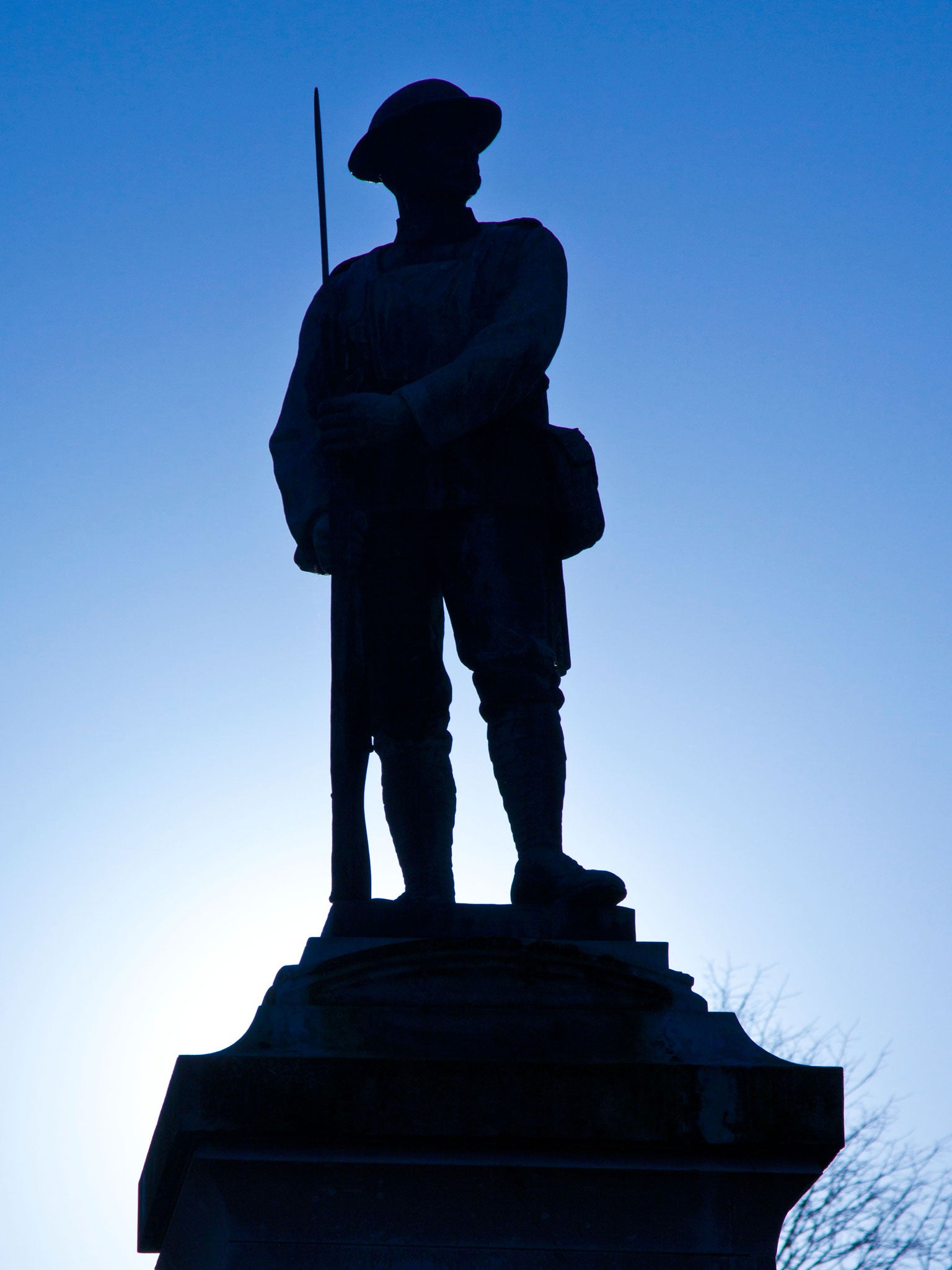Dear Unknown Soldier, imagine you could read my letter now... Week in Books column

No bodies were returned to Britain after the end of the First World War. That some corner of a foreign field became forever England was down to the sad fact that there were too many fallen to bring back, and too many who couldn’t have been claimed because they couldn’t be identified. So on 7 November 1920, an unidentified body dug up from France was buried under marble at Westminster Abbey. This man would become the “unknown soldier”. In the first week of his arrival, 1.3 million came to pay their respects. It was an extraordinary turnout, and it signalled how much emotional symbolism lay within his anonymity.
This summer, as we marked the Great War’s centenary, another extraordinary thing happened to prove that the unknown soldier is alive in our collective consciousness, and that we, the young as well as the old, are willing – perhaps even craving – to commune with him.
In June, writers Neil Bartlett and Kate Pullinger invited the public to send letters to another commemoration of an “unknown soldier” on Platform 1 of Paddington Station in London. He stands, lifesize and sculpted in bronze, in one corner of the station, slightly removed from the commuting crowds as he reads from a letter. What might we, the public of 2014, want to say to someone who died in the trenches 100 years ago? Rather a lot, it turned out. Pullinger and Bartlett were staggered by the response they received in their postbag, not just from families of the Great War’s fallen but from the children of soldiers who had died in Afghanistan or Iraq, and from people of all ages from around the world untouched by war, but who know something of loss, and displacement, and grief.
Of more than 21,000 letters, poems, drawings and photographs sent to the soldier between 28 June and 4 August, many didn’t type or email their letter but sat down and wrote it, pen on paper. The letters were posted online as they came and are now being archived by the British Library. I considered writing a letter myself before everyday life distracted me from bigger, more important thoughts. A letter to the unknown soldier requires headspace beyond the 140 characters that can be multi-tasked into the day. That’s why I was so impressed by all those who wrote to the soldier in Paddington.
We’ll soon get a chance to read these letters ourselves, as they are to be published in book form, some in their original hand-writing, others typed, some from children, others from former poet laureates, novelists, comedians... The distinguished haven’t been given special placement; the letters appear in no special order, deliberately randomised so you stumble across them rather as you would if they were placed on a memorial pin-board. There are letters by anyone from David Cameron to Dawn French and inmates of HMP Chelmsford. The first is from a 14-year-old girl who begins: “Dear Unknown Soldier, imagine you could read my letter now and see how far the world has come since you were fighting in the war.” Her sentiments both gladden the heart, and make it sink. Collectively, the letters provide a curious snapshot – local and universal themes that have everything to do with the Great War, and our own times. But I won’t give too much away before the publication of Letter to an Unknown Soldier on 6 November.
What is thrilling is that this collection is not the result of a publisher’s boardroom brainstorm. It was born out of public response. You made this book happen. It proves that despite our digital, flat-screen age, the First World War, and letter writing, and most of all, the unknown soldier, are not dead or forgotten by us.
How gridlock offered the key to a new novel
Inspiration hit Turkey’s bestselling author, Elif Shafak, in an Istanbul traffic jam, she revealed at the London Literature Festival. Her car stopped outside a mosque designed by Sinan, an Ottoman-age architect, “when I saw a gypsy boy”. A few days later she received a biography of Sinan’s work. So her new novel, The Architect’s Apprentice, about Sinan and a 12-year-old Indian boy, was born.
The winner welcomes a new booker chapter
Man Booker Prize-winner Richard Flanagan, has welcomed changes in the prize’s rules to allow American writers: “Now you have taken away the razor-wire, you have created the great English language prize… maybe we should be less fearful of the cultural might of American... more confident about literature that really matters, and that comes from the edges,” he said.
In short, a truly triumphant year
In the year that surely cements the return of the short story, Aesthetica magazine for new writing has just shortlisted 85 stories out of 1,000 entries. As one of the judges, I was astonished by the amount of entries from all over the world – from Manhattan to Auckland – and look forward to announcing the winner in December, along with a selection whose stories will be published in an anthology.
Subscribe to Independent Premium to bookmark this article
Want to bookmark your favourite articles and stories to read or reference later? Start your Independent Premium subscription today.

Join our commenting forum
Join thought-provoking conversations, follow other Independent readers and see their replies